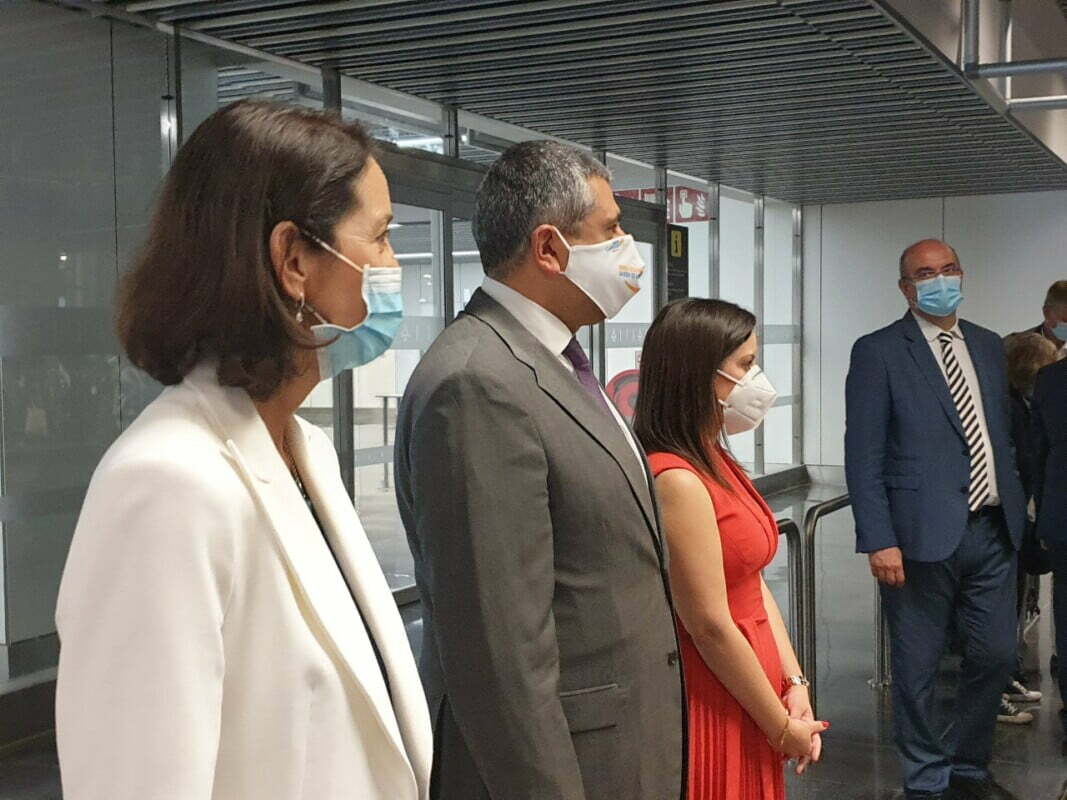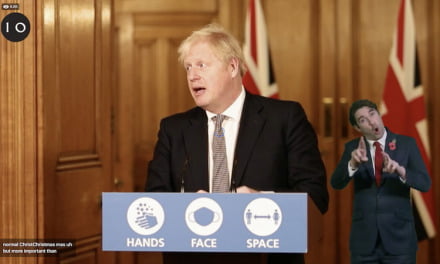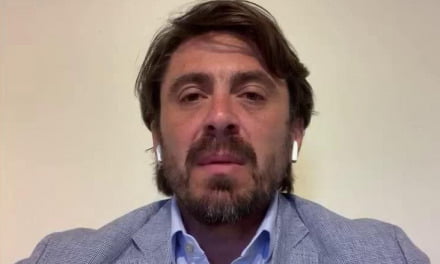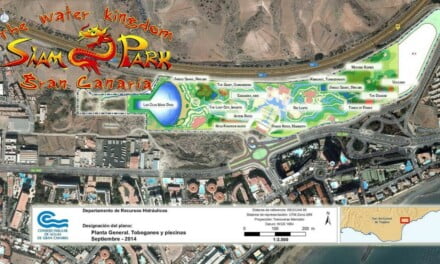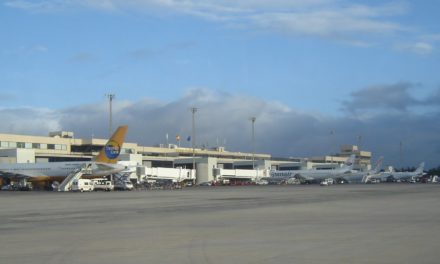 The Secretary General of the World Tourism Organization (UNWTO), Zurab Pololikashvili, and the Minister of Industry, Commerce and Tourism for the Government of Spain, Reyes Maroto, flew to Gran Canaria this week (Wednesday July 8) aboard a scheduled promotional flight to demonstrate the Canary Islands as a safe tourism destination. The first official flight of its kind promoting safe tourism to Spain in the post pandemic era.
The Secretary General of the World Tourism Organization (UNWTO), Zurab Pololikashvili, and the Minister of Industry, Commerce and Tourism for the Government of Spain, Reyes Maroto, flew to Gran Canaria this week (Wednesday July 8) aboard a scheduled promotional flight to demonstrate the Canary Islands as a safe tourism destination. The first official flight of its kind promoting safe tourism to Spain in the post pandemic era.
Just like King Felipe and Queen Letizia did a couple weeks beforehand, UNWTO selected Gran Canaria as the first destination in Spain to visit following the European lockdown, and the first example of safe tourism to be promoted.
The delegation was made up of institutional representatives, international journalists and travel agents, who travelled with them to report first hand on the procedures put in place to secure a revival of the tourist industry following de-escalation of one of Europe’s toughest “lockdowns” which has successfully resulted in one of the lowest rates of corona virus infection in the country.
Pololikashvili told reporters “The situation now in Spain is not the same as it was two months ago. It is safe to travel and that is why we are here in the Canary Islands… Now it is time to travel.“
“We want to send the message to the whole world that the Canary Islands is open, that it is safe and that Spanish and international tourists can come” he said.
The initiative to present the Archipelago as a safe destination Covered all eight islands, starting with a flight direct to Gran Canaria, and was the result of collaboration between the regional government and the UN World Tourism Organisation who want to support the recovery of tourist destinations demonstrating security, sustainability and innovation.
Joining Pololikashvili and Maroto on this important first official flight were various UNWTO technicians, representatives of travel agents from across Europe, and some forty journalists from national and international media, both travel and general, including La Vanguard, El País, El Mundo, New York Times, Deutsche Welle, Ansa, Euronews and Die Welt, among many others.
The President of the Canary Islands received the delegation
 President Angel Víctor Torres, and regional tourism minister Yaiza Castilla welcomed the delegation of about 180 people. The flight was used to demonstrate security protocols both at destination and at origin, which include the performance of PCR and voluntary serological tests on travelers, under the supervision of a medical team, before embarking on the trip, in addition to the opportunity to use the new Hi+Card certification app, under development for more than a year and endorsed by the WTO following the shutdown of global tourism in the face of the Covid-19 pandemic response. The app securely stores personal test result information, using blockchain technology, on the user’s mobile device, so that it is accessible and can be displayed whenever necessary during transit.
President Angel Víctor Torres, and regional tourism minister Yaiza Castilla welcomed the delegation of about 180 people. The flight was used to demonstrate security protocols both at destination and at origin, which include the performance of PCR and voluntary serological tests on travelers, under the supervision of a medical team, before embarking on the trip, in addition to the opportunity to use the new Hi+Card certification app, under development for more than a year and endorsed by the WTO following the shutdown of global tourism in the face of the Covid-19 pandemic response. The app securely stores personal test result information, using blockchain technology, on the user’s mobile device, so that it is accessible and can be displayed whenever necessary during transit.
The group’s stay was planned to coincide with a meeting of the Canary Islands Tourism Council, attended by representatives of public, social and business sectors from across the islands.
UNWTO‘s Secretary General and ministers met with the council to discuss their report of progress on the Canarias Fortaleza (Fortress Canaries) project, which seeks to address the challenges for the tourism sector and the regional government’s focus on maintaining the archipelago’s outstanding achievements in quickly curbing and avoiding infections as the corona virus crisis developed throughout the spring, which has left The Canary Islands as one of the populations least affected by infections in Spain and across Europe, while at the same time most at risk from the economic impacts of the global pandemic response.
The journalists, and other members of the delegation, have split into smaller groups to enjoy stays until July 13, and beyond, throughout The Canary Islands to see for themselves how the various resorts, excursions and tourist providers have adapted to the new protocols intended to maintain the highest levels of safe tourism anywhere on the world.

